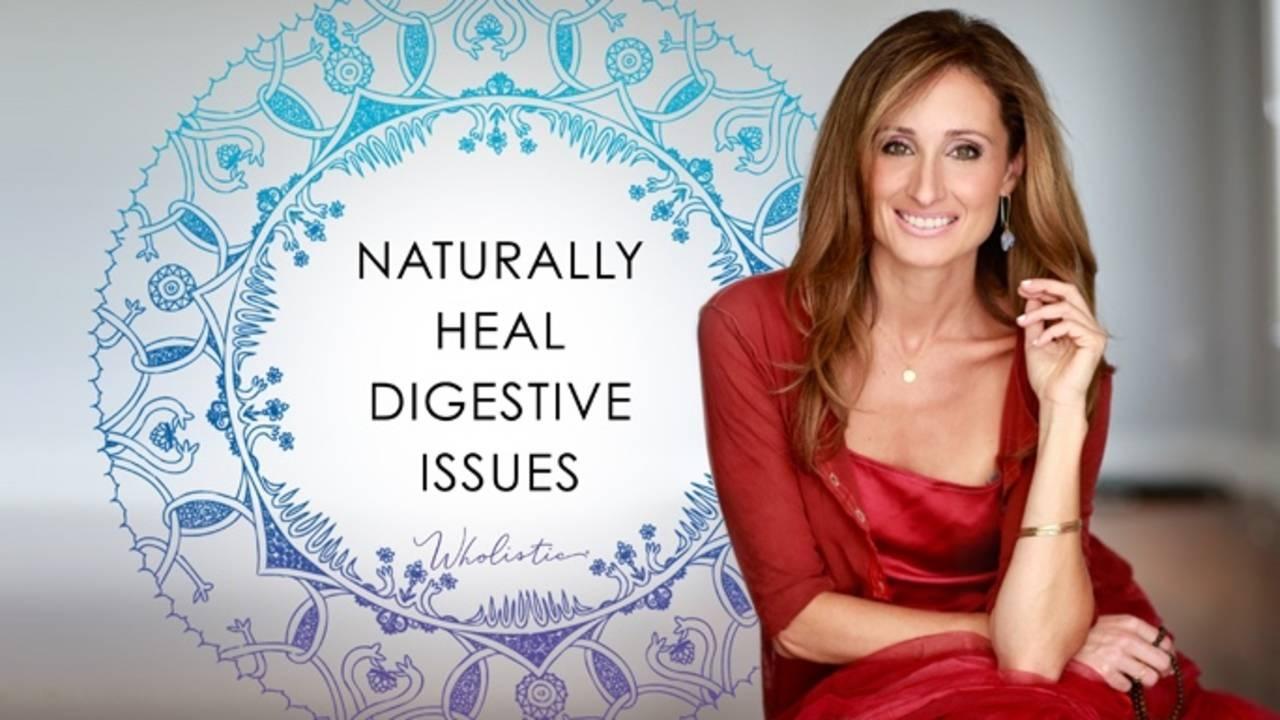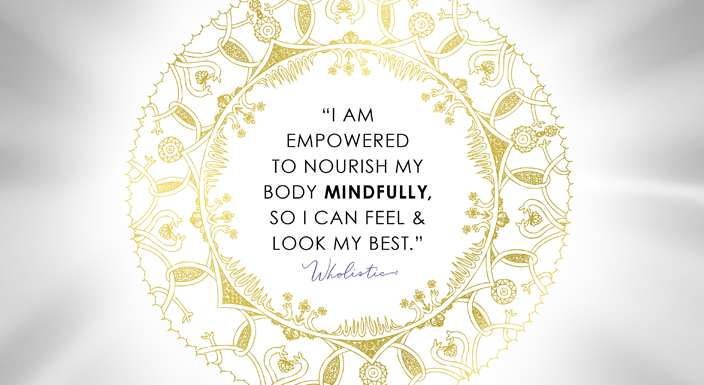Naturally Heal Digestive Issues!

Digestive issues are one of the most common causes for concern I hear from my patients. Symptoms such as bloating, stomach pains, heartburn, constipation, diarrhea, and even weight-management struggles can be linked to disruption of healthy gastrointestinal (G.I.) processes. Living with untreated chronic digestive issues can result in severe health complications.
Many suffer silently, thinking these ailments are just a normal part of life or a side effect of aging. There is hope! Here, I share my best advice from over 20 years of practice in integrative, regenerative, and Quantum Medicine for you to start healing your G.I. system.
I created this video answering the top three questions about this topic:
- What are some common signs indicating digestive issues?
- What can you do to better support your digestive health?
- How can energy work help heal digestive issues?
As explored in the video, it’s immensely important to understand that healthy digestive processes are crucial to our overall wellbeing. “Overall” includes our cognitive processes and mood/emotions, which are connected to our digestive system by way of the “brain-gut axis” (BGA). The BGA is a bidirectional communication system between the enteric nervous system (located in the walls of the G.I. tract), and the autonomic and central nervous systems (1,2). Put more simply: what you eat, how you eat, and when you eat can all affect how you feel physically and emotionally. In turn, how you feel can influence your eating habits and digestive health. It can be a vicious cycle!
The severity of symptoms can be either aggravated or improved by behaviors and mindset.
The interaction between the prevalence of G.I. distress and psychology is fascinating. Research clearly indicates that symptom severity can be either aggravated or improved by behaviors and mindset (3). A large body of evidence points to negative emotions and stress as triggers for symptoms of many digestive ailments, including heartburn, Irritable Bowel Syndrome (IBS), and Leaky Gut Syndrome (4,5). I share this to encourage you to start shifting your behaviors AND thoughts to a more positive frequency to begin healing.
Here are my Do’s & Don’ts for Digestion that you can easily incorporate into your daily life:
DON’T eat while distracted or rushed. Eat in a relaxed atmosphere instead of the car or in front of a phone, TV, or computer screen. When creating your weekly schedule, make sure to pencil in times for meals so you can eat mindfully. If you can be present with your meal, enjoying the colors, flavors, and sensations – you’ll be much more satisfied!
DO learn relaxation and stress management techniques. Eating while anxious or turning to food as a coping mechanism all wreak havoc on digestive health. Start by taking deep breaths and imagining the healthy food nourishing your body before you begin eating. When under stress, your solar plexus chakra can become unbalanced. Use my Power Blend from my Chakra System Set topically to support balance of the chakra that represents how you “digest” life.
DON’T abuse caffeine, alcohol, or medications (pain relievers are notorious for causing digestive distress) to temporarily quell symptoms of issues such as fatigue, trouble sleeping, and acid reflux. You must address the root cause or you’ll be further aggravating the stress and inflammation in your body. Caffeine causes an increase in gastric acid production. Alcohol relaxes the lower esophageal sphincter increasing the likelihood of heartburn. Masking symptoms of acid reflux when you’re having chronic issues can lead to increased risk of esophageal cancer, ulcers, and scar tissue buildup in the throat (6).
DO tune in to your intuition, supported by a solid base of nutrition knowledge to determine what your body needs in meal size and frequency. When you’re in touch with internal cues for fullness, you’ll avoid overeating. (Stretching out your stomach causes overproduction of gastric acid!) Importantly, it takes time for your stomach to signal to your brain that you’re satisfied, so eat slowly. Make sure your last meal is 3 hours before you lay down for bed to avoid heartburn.
DON’T body shame or engage in critical self-talk. As mentioned above, negative thoughts are linked to symptom severity. Practice self-care and regard yourself as the magnificent being you are. Love your body and the energy of love will be reflected back.
DO take small bites and chew your food well. Digestion starts in your mouth when key enzymes are released in your saliva. Aim for approximately 20 chews per mouthful. Putting your utensils down between bites reinforces this healthy habit.
DON’T hop on diet trends that claim to be a cure for specific ailments. Certain protocols and supplements could make your issues worse depending on your unique circumstances and medical history. Following restrictive diets without consulting a professional can lead to malnutrition and many harmful side effects like muscle loss, nervous system damage, and impaired function of major organs (6).
DO enlist the help of a professional to test and treat you. There are many options available from clinics to private labs for getting tested to see if you have issues such as lactose malabsorption, gluten intolerance, or food allergies. This can save you a lot of time and stress navigating potential physical limitations on your own and can speed up your ability to start appropriate treatment and dietary adjustments. Schedule your next session with me via Zoom or in person. Together, we can develop a plan that is personalized to your individual needs.
Repeat this mantra as needed to ensure you are in a supportive mindset for healthy digestion:
“I am empowered to nourish my body mindfully, so I can feel and look my best.”

Want more?
Download The Ultimate Guide for Healthy Digestion, FREE!
The Ultimate Guide for Healthy Digestion will open your eyes to the simple natural healing techniques you can start right now to enjoy the best gut-health of your life!
- Discover even more life-changing information about food sensitivities
- Learn all about leaky gut syndrome and how to overcome this common ailment
- Master your gut microbiome to prevent imbalances like yeast overgrowth
Download Now
References:
1. Jones, M. P., Dilley, J. B., Drossman, D., & Crowell, M. D. (2006). Brain-gut connections in functional GI disorders: Anatomic and physiologic relationships. Neurogastroenterology and Motility, 18(2), 91-103. doi:10.1111/j.1365-2982.2005.00730
2. Fichna, J., & Storr, M. A. (2012). Brain-Gut Interactions in IBS. Frontiers in Pharmacology, 3. doi:10.3389/fphar.2012.00127
3. Allen, A. P., Dinan, T. G., Clarke, G., & Cryan, J. F. (2017). A psychology of the human brain-gut-microbiome axis. Social and Personality Psychology Compass, 11(4). doi:10.1111/spc3.12309
4. Windgassen, S., Moss-Morris, R., Chilcot, J., Sibelli, A., Goldsmith, K., & Chalder, T. (2017). The journey between brain and gut: A systematic review of psychological mechanisms of treatment effect in irritable bowel syndrome. British Journal of Health Psychology, 22(4), 701-736. doi:10.1111/bjhp.12250
5. Foster, J. A., Rinaman, L., & Cryan, J. F. (2017). Stress & the gut-brain axis: Regulation by the microbiome. Neurobiology of Stress, 7, 124-136. doi:10.1016/j.ynstr.2017.03.001
6. Bonci, L. (2003). American Dietetics Association Guide to Better Digestion (1st ed.). Wiley.
Discover Three Powerful Ways to Bring Health & Vitality Into Your Everyday Life in This FREE Masterclass by Worldwide Master Practitioner In Wholistic Healing, Elena Bensonoff.
Sign Up for the Masterclass below:






